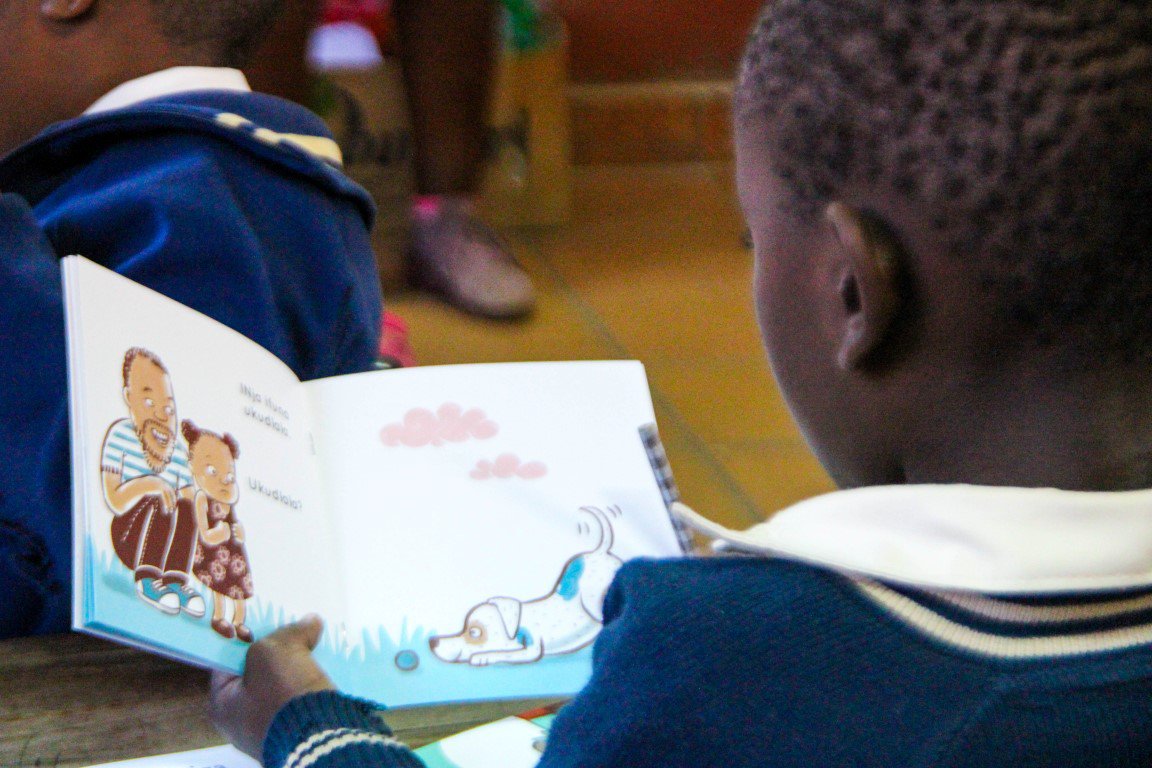World Book Day: four reasons to unplug and read a paper book
According to the National Reading Survey more than half of South African adults still live in households without literature and this is not improving over time.
It also reports that some 65% of children turn 10 years old without having a single picturebook in their homes. “This is a devastating statistic,” says Jane Molony, executive director of the Paper Manufacturers Association of South Africa (PAMSA), an association that promotes the use of paper for communication, packaging and also books and print media.
The same survey found that 77% of adults who live with children believe that it is important for children to read in print and not on cell phones or digital devices.
While digital reading is widespread, especially among young people (under 35), and offers opportunities for free reading material distribution, there is still a place for the printed word asserts PAMSA.
“We certainly do not advocate that reading on paper and print should be seen as a competitor to reading on screen, but digital books should not be a replacement for the accessibility of printed reading materials,” says Molony.
Today (23 April 2024), World Book Day 2024, is centred around the theme Read Your Way, calling on everyone to let go of pressure and expectations, giving children a choice – and a chance – to enjoy reading. “We believe that paper-based books are important for early readers,” notes Molony, adding that little books in little hands can open a whole new world for children which is why initiatives such as Book Dash and Nali’bali are making great strides to provide books for young children.
Book Dash publishes printable open source books on their website for free. “It’s a convergence of both worlds, allowing anyone to read, download, print, and share the books,” explains Molony. Nal’ibali encourages reading as a daily activity. Operating in seven provinces, it provide free online audio stories and story books to children in all 11 official languages and Braille.
Four reasons why paper books are good for us
There are several reasons why paper books are good for us, and this extends beyond mere text or images on a page. According to PAMSA, here are four reasons why paper books should still have a place in our homes and schools.
Tactile engagement
There is an unmatched physical response to holding a book, turning its pages, and feeling its weight. This can create a deeper connection with the content, especially when children engage with picture books. In turn, this enhances the reading experience, making it fun and appealing.
Enhanced focus and comprehension
Reading for meaning is a critical development milestone. According to the National Reading Survey, less than 20% of Grade 4 learners (approximately 10 years old) cannot read for meaning. Research suggests that reading from paper encourages better focus and comprehension compared to reading from screens. Without digital distractions, flipping through paper pages can help readers maintain concentration and retain information more effectively as they create a visual map of what they have read or where on the page they read it.
Better for your eyes and brain
In an era dominated by screens, opting for a paper books can help us ‘unplug’ from digital devices. Reading from a printed page reduces eye strain and exposure to blue light, promoting better sleep and overall well-being, especially when reading before bedtime.
Sentimental value, collectability and shareability
There is an incomparable sentimentality to paper books. Whether it's a cherished childhood story, a gift from a loved one, or a well-worn favourite, books are memories. For avid readers and collectors, there's a special pleasure in building a physical library, a display of tangible reminders of literary journeys and personal milestones. Printed books can also be shared among family and friends.
“While digital formats offer convenience and accessibility, paper books give us a richer experience that many of us still find irreplaceable,” concludes Molony.
By: Frog Communications
Image credit: Book Dash









